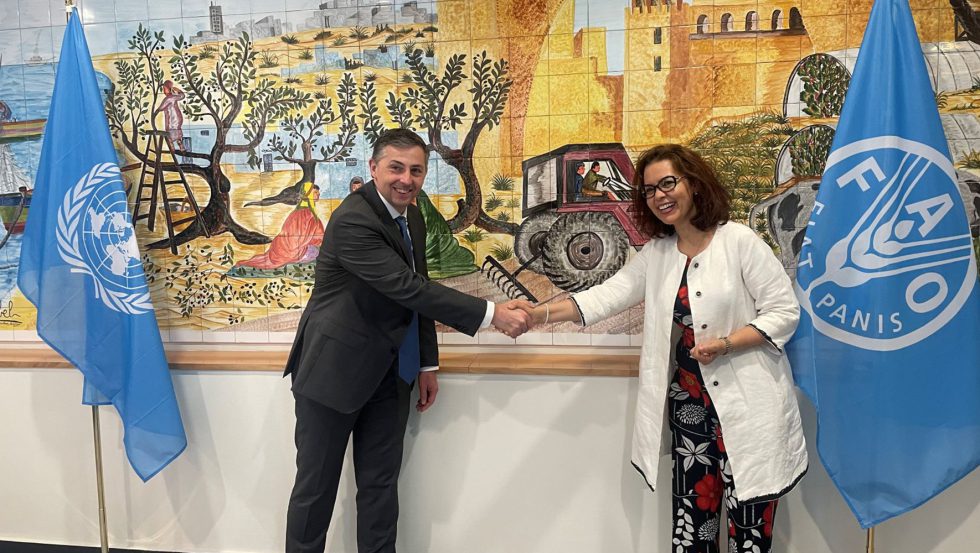The meeting held in Rome
Drafting between sister companies06/13/2022
Sima s FAO They reaffirm their commitment to promoting sustainable agricultural mechanization that is economically viable, socially and economically acceptable and respectful of the environment.

Members of the CEMA and FAO delegations at the meeting in Rome on 9 June.
The European Agricultural Machinery Industry Association (CEMA) and the United Nations Food and Agriculture Organization (FAO) affirm their commitment to promoting sustainable agricultural mechanization in the agri-food value chain, from production to processing, and post-harvest work.
They have worked together for seven years focusing on areas where mechanization shows the greatest potential for increased productivity and improved livelihoods. This collaboration also supports the launch of the Framework for Sustainable Agricultural Mechanization in Africa (F-SAMA), launched in October 2018, which helps guide policy and decision makers on integrating sustainable mechanization into agriculture. National and regional agricultural development programmes, with a focus on enhancing agricultural energy through technology and innovative business models.
On June 9, during a hybrid event where they outlined their collaboration, CEMA and the Food and Agriculture Organization emphasized the importance of mechanization to cover different types of needs and functions, from basic hand tools to sophisticated automated equipment. Its adoption, referring to the most disadvantaged areas, provides significant benefits, helps reduce hard work, alleviate labor shortages, improve productivity and efficient use of resources, access to the market, and mitigate risks related to the work climate. In his view, it could be a “change agent” for the farmer and a key element in the development of sustainable agri-food systems.

Thierry Krier, President of CEMA, and Ismahane Elouafi, Chief Scientist at the Food and Agriculture Organization.
Both entities revealed that the production and distribution of agricultural machinery, as well as the innovations introduced in this field, are being promoted by the private sector and require significant investments. In his opinion, the mechanization process will be truly sustainable when it is economically feasible, socially and economically acceptable and respectful of the environment. In addition, it should be climate smart, affordable, especially for small farmers, and available to groups likely to face more challenges, such as using agricultural inputs or engaging women and youth.
During the event, it was reflected that technological advancement brings with it opportunities for mechanization to contribute to productivity and multiply efficiency. In this sense, digitization offers great potential, but it guarantees successful adoption, especially in areas where levels in this department are still very low and require the participation of a series of interested parties, including manufacturers, distributors, workshops and digital service providers. Solutions, institutions, financial companies and machine rental service providers.

“Beeraholic. Friend of animals everywhere. Evil web scholar. Zombie maven.”
